Moderate Left Moderate Venstre | |
|---|---|
| Abbreviation | F |
| Split from | Venstre |
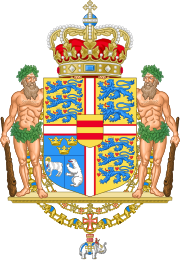 |
|---|
Moderate Venstre, also known as the Moderate Liberals or Moderate Left, was a political party in Denmark.
Moderate Left Moderate Venstre | |
|---|---|
| Abbreviation | F |
| Split from | Venstre |
 |
|---|
Moderate Venstre, also known as the Moderate Liberals or Moderate Left, was a political party in Denmark.
The party emerged as the largest faction in the 1892 Folketing elections, winning 39 of the 102 seats. [1] The 1895 elections saw it defeated by the Venstre Reform Party, finishing in second place with 27 seats. In 1898 the party was reduced to 23 seats, before falling to 16 seats in 1901, twelve seats in 1903 and nine seats in 1906.
After the party recovered to win eleven seats in 1909, it merged into Venstre before the 1910 elections. [2]
| Election | Votes | % | +/– | Seats | +/– | Size | Status |
|---|---|---|---|---|---|---|---|
| 1892 | 28.1 | New | 39 / 102 | New | 1st | Support | |
| 1895 | 42,635 | 27 / 144 | Support | ||||
| 1898 | 36,395 | 23 / 114 | Support | ||||
| 1901 | 26,993 | 11.99 | 16 / 114 | Opposition | |||
| 1903 | 19,149 | 8.12 | 12 / 114 | Opposition | |||
| 1906 | 20,487 | 6.78 | 9 / 114 | Opposition | |||
| 1909 | 19,241 | 5.93 | 11 / 114 | Opposition |

Venstre, full name Venstre, Danmarks Liberale Parti, is a conservative-liberal, agrarian political party in Denmark. Founded as part of a peasants' movement against the landed aristocracy, today it espouses an economically liberal, pro-free-market ideology.
The Conservative People's Party, also known as The Conservatives is a centre-right political party in Denmark. The party is a member of the European People's Party (EPP) and International Democracy Union (IDU).
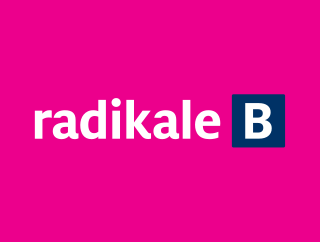
The Danish Social Liberal Party is a social-liberal political party in Denmark. The party was founded as a split from the Venstre Reform Party in 1905.
This article gives an overview of liberalism in Norway. It is limited to liberal parties with substantial support, mainly proved by having been represented in the Norwegian Parliament, Stortinget.
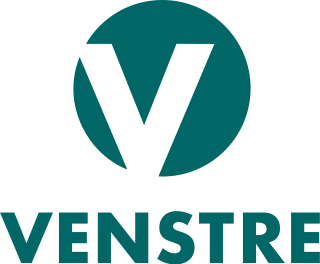
The Liberal Party is a centrist political party in Norway. It was founded in 1884 and it is the oldest political party in Norway. It is positioned in the centre on the political spectrum, and it is a liberal party which has over the time enacted reforms such as parliamentarism, freedom of religion, universal suffrage, and state schooling.

General elections were held in Denmark on 8 February 2005. Prime Minister Anders Fogh Rasmussen's Venstre remained the largest party in the Folketing and his governing coalition with the Conservative People's Party remained intact, with the Danish People's Party providing the parliamentary support needed for the minority government. The Danish Social Liberal Party made the biggest gains of any party, although it remained outside the governing group of parties. The elections marked the second time in a row that the Social Democrats were not the largest party in parliament, a change from most of the 20th century. The Social Democrats lost five seats and leader Mogens Lykketoft resigned immediately after the elections. Voter turnout was 85% in Denmark proper, 73% in the Faroe Islands and 59% in Greenland.
The Moderate Liberal Party was a political party in Norway that emerged from the moderate and religious branches of the Liberal Party in 1888. The party's turn towards cooperation with the Conservative Party caused a party split in 1891, eventually sharpening its profile as a moderate-conservative party based among the low church of south-western Norway. The party was dissolved shortly after the dissolution of the union with Sweden in 1905.
The Free-minded Liberal Party was a political party in Norway founded in 1909 by the conservative-liberal faction of the Liberal Party. The party cooperated closely with the Conservative Party and participated in several short-lived governments, including two headed by Free-minded Prime Ministers. In the 1930s the party changed its name to the Free-minded People's Party and initiated cooperation with nationalist groups. The party contested its last election in 1936, and was not reorganised in 1945.
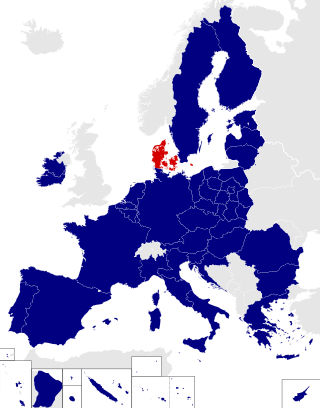
Denmark is a European Parliament constituency for elections in the European Union covering the member state of Denmark, but not other parts of the Danish Realm such as the Faroe Islands or Greenland, which are not part of the EU. It is currently represented by fourteen Members of the European Parliament. Denmark uses the D'Hondt method of proportional representation. Electoral coalitions between two or more parties are allowed.
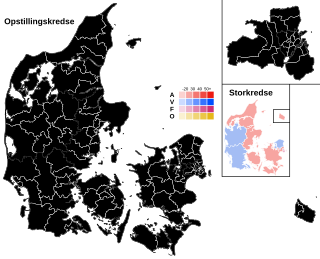
European Parliament elections were held in Denmark on 7 June 2009 to elect the 13 Danish members of the European Parliament. The election was held simultaneously with a referendum on changing the Danish Act of Succession.

Lars Løkke Rasmussen is a Danish politician who has served as Minister of Foreign Affairs since 2022. He previously served as the 25th Prime Minister of Denmark from 2009 to 2011 and again from 2015 to 2019. He was the leader of the liberal Venstre party from 2009 to 2019.

The politics of Denmark take place within the framework of a parliamentary representative democracy, a constitutional monarchy and a decentralised unitary state in which the monarch of Denmark, King Frederik X, is the head of state. Denmark is a nation state. Danish politics and governance are characterized by a common striving for broad consensus on important issues, within both the political community and society as a whole.

The 2014 European Parliament election in Denmark was an election held in Denmark on 25 May 2014 to decide who would represent Denmark in the European Parliament (EP) from 2014 to 2019. The Danish People's Party with 26.6% of the votes became the largest party for the first time in a nationwide Danish election.

Parliamentary elections were held in Norway on 11 September 2017 to elect all 169 members of the unicameral Norwegian Parliament, the Storting. The non-socialist parties retained a reduced majority of 88 seats, allowing Prime Minister Erna Solberg's Conservative-Progress coalition to remain in government. The Liberal Party joined the coalition in January 2018 but it remained a minority cabinet until the Christian Democratic Party joined the coalition in 2019. The three largest centre-left parties won 79 seats. The Green Party retained its single seat, while the Red Party won its first ever seat.

General elections were held in the Kingdom of Denmark on 1 November 2022, except in the Faroe Islands, where they were held on 31 October as 1 November was a national day of mourning for victims at sea. Of the 179 members of the Folketing, 175 were elected in Denmark proper, two in the Faroes and two in Greenland. The elections were called on 5 October following an ultimatum to the government by the Social Liberals due to the outcome of a report on the 2020 Danish mink cull by the Mink Commission, which was critical of the government. Voter turnout was 84% in Denmark, 48% in Greenland, and 71% in the Faroes, with a combined turnout of 84% for the realm as a whole.

The 2019 European Parliament election in Denmark was held on 26 May 2019, and elected the Danish members to the European Parliament. The elections are part of the EU-wide elections for the parliament. Denmark had 13 seats in parliament, which increased by one additional seat following Brexit.
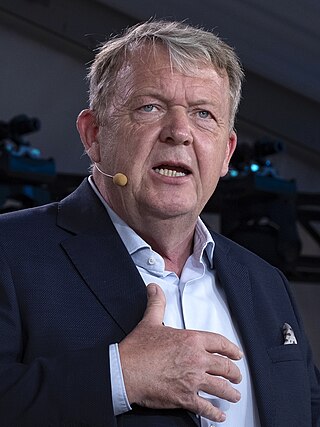
The Moderates is a liberal political party in Denmark founded by former Prime Minister and current Minister of Foreign Affairs Lars Løkke Rasmussen. He announced the name in a foundational speech on 5 June 2021. At the same time, he said that his main scenario was that the party would be formed after the 2021 Danish local elections. The name was, according to Rasmussen, inspired by the fictitious Prime Minister Birgitte Nyborg's party Moderaterne in the hit political TV drama Borgen as well as the Swedish Moderate Coalition Party, the then–second largest party in the Swedish Riksdag. The Moderates' political position is referred to as centre to centre-right.
Henrik Frandsen is a Danish politician serving as Member of the Folketing for the Moderates since the 2022 election. He was formerly mayor of Tønder Municipality.